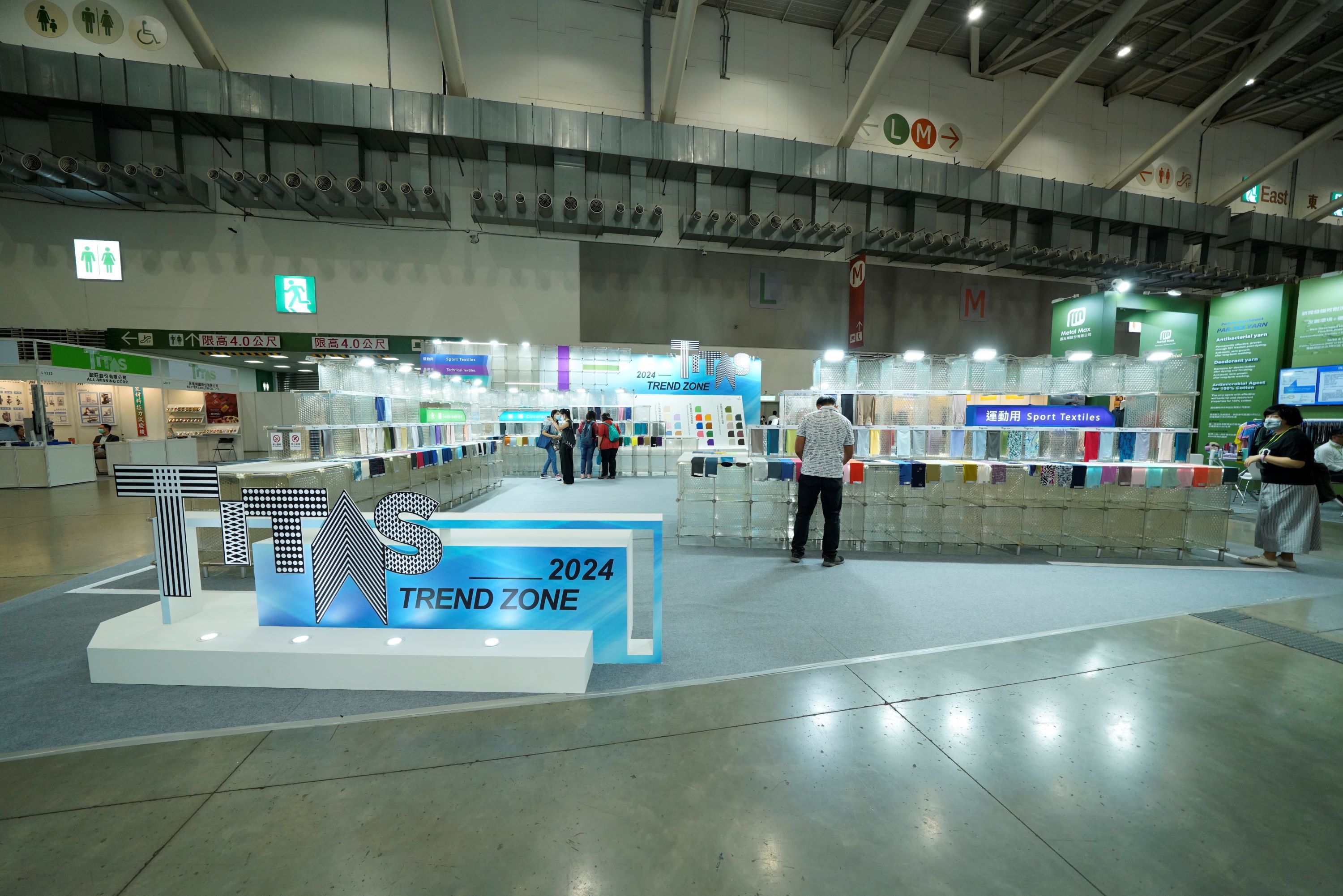
Taiwan's textile industry is recognized as a global leader in functional and eco-friendly textiles, with stakeholders committed to continuous innovation. TITAS serves as Asia’s key sourcing platform for textiles and clothing, and participation continues to grow. Over the three-day exhibition, approximately 31,500 visitors explored nearly 1,000 booths from 385 exhibitors, generating an estimated US$51 million in future business opportunities, according to the Taiwan Textile Federation (TTF).
This season's focus was on high-quality green textiles, with a special sustainable landmark area featuring an artistic sailboat installation. This area showcased collaborations among fiber manufacturers, textile factories, and apparel producers, highlighting clothing recycling and the development of a complete circular economy within the textiles sector.
In alignment with global trends, TITAS emphasized three core themes: “Sustainability, Functional Applications, and Intelligent Manufacturing.” These themes underscored the industry’s achievements in both innovation and sustainability.
Pursuing Sustainable Innovation and Excellence
The exhibition effectively integrated manufacturers across the textile supply chain and showcased smart manufacturing technologies, providing global brands with low-carbon, high-quality, and traceable solutions. This shift is essential for enhancing operational resilience in the face of net-zero global supply chain management.
During the opening ceremony, TTF Chairman Kuo highlighted the importance of TITAS for Taiwan's textile industry, noting the significant international participation this year. He emphasized the industry's commitment to sustainability in response to global challenges and the numerous international brands involved in the Taiwan Textile Business Meetings, which offered ample business opportunities despite ongoing geopolitical tensions and inflation. Kuo called for continued government support to foster stable growth and innovation in the sector.
TTF President Justin Huang further stressed the importance of combining carbon reduction and recyclability with style and functionality. He advocated for mono-material garments to facilitate recycling and discussed the opportunities presented by Digital Product Passports (DPP) for enhanced traceability. Innovations from leading companies such as Far Eastern New Century Corporation (FENC), Formosa Taffeta (FTC), Chain Yarn, New Wide Group, and Tex Ray were prominently featured.
The event also highlighted nature-inspired patterns and low-impact materials like wool, linen, BCI cotton, Tencel, and recycled textiles, all designed to enhance comfort and recyclability. Waterless dyeing and solution dyeing techniques were prominently showcased, illustrating advancements in sustainable practices.
In terms of functionality, exhibitors focused on various needs, including sports, health, safety, comfort, and medical care, featuring moisture-wicking, odor control, and stain resistance, along with safety fabrics for industrial applications. Leading manufacturers showcased advancements in sustainable textiles and Industry 4.0 technologies. OSHIMA presented innovative fabric inspection and spreading machines, PAILUNG introduced smart knitting solutions, and ACME unveiled a cutting-edge digital printing machine, all emphasizing efficiency and environmental responsibility in garment production.
Looking ahead, TITAS 2025 is scheduled for October 14-16, 2025, at Nangang Exhibition Center Hall 1.
Fibre2Fashion News Desk (RM)